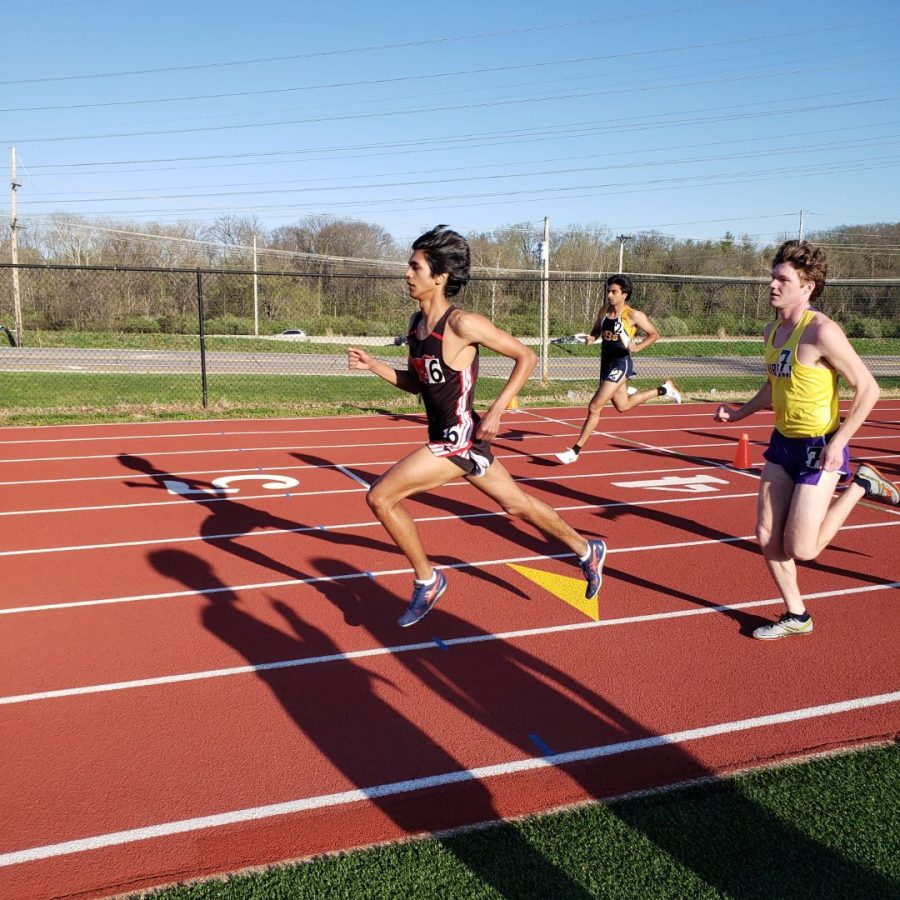The Ramadan Runner
Mohib Kazmi’s track & field experience while fasting
May 12, 2022
Track and field can be a very demanding sport, requiring hours of practice and dedication. Mohib Kazmi (12), is well versed in commitment and dedication; as a Muslim, Kazmi takes part in Ramadan. During the 9th month of the Muslim calendar, followers of Islam, like Kazmi, follow a strict fasting that is observed from sunrise to sunset. Coincidentally, Ramadan is celebrated during spring sports seasons, leading many athletes with a difficult choice.
“Ramadan is about feeding your soul instead of feeding your body. So, instead of going into basic bodily temptations, you read prayers a lot and then you also just like to do things to feed the soul,” Kazmi said.
Kazmi has been doing Track and Field while fasting for the last four years. While the dates vary on the Gregorian calendar, the standard; Ramadan usually falls during the track and field season.
“So usually, my entire high school career, it’s landed around like track season. So, all four years, I’ve fasted during track season. Not eating is not like a big disadvantage, but it’s slowed down my progress a little bit, but other than that it’s just something minor,” Kazmi said.
Hannah Merriman, math teacher and track coach, has been in charge of altering his workouts, and supervising his progress throughout the holy month. She’s been coaching the varsity runner for four years, both in cross country and long distance track and field.
“There’s a lot of communication, making sure he’s feeling okay, and just trying to get as much training in at least that we can safely. He’s had a lot of experience, he’s a senior now. We tend to not do longer distance races so he’s probably not gonna run the two mile, we’re gonna have them stick to the 800 or the mile or most of the time, but mostly communication plays the biggest role,” Merriman said.
William McCoy’s article on average calorie intake and outake, on healthyeating.sfgate.com suggests that “Between ages 14 and 18, boys need 2,000 to 3,200 calories a day, depending on activity levels.”
Nevertheless, athletes in track and field tend to burn more calories than usual; especially those who train as extensively as Kazmi.
“As a very general and simplistic rule, an average-sized runner will burn about 100 calories per mile. So if your goal is to burn 500 calories, you need to run about five miles,” according to Christians Luff’s article on verywellfit.com.
In addition, Muslims partaking in Ramadan must refrain from taking water, or any other liquid. Overall, the numbers truly show how dedicated Kazmi is to both his religion, and his sport.
Kazmi is not alone, many professional athletes around the world deal with this situation as well. Khadijah Diggs, American athlete, and the first ever African-American woman to be a member of the U.S. Long Course Triathlon Team, also celebrates Ramadan as does NFL defensive back Hamza Abdullah.
“It’s important for Muslims who look at athletes as role models to not judge them based on if they’re fasting or not fasting,” Abdullah said in an interview with Michael Weinreb of Global Sports Matters.
After the holy month ends, the last evening of Ramadan consists of a celebration called Eid-al-Fitr, which ends the month-long fasts with a well deserved feast. Eid-al-Fitr falls on May 1 this year.



